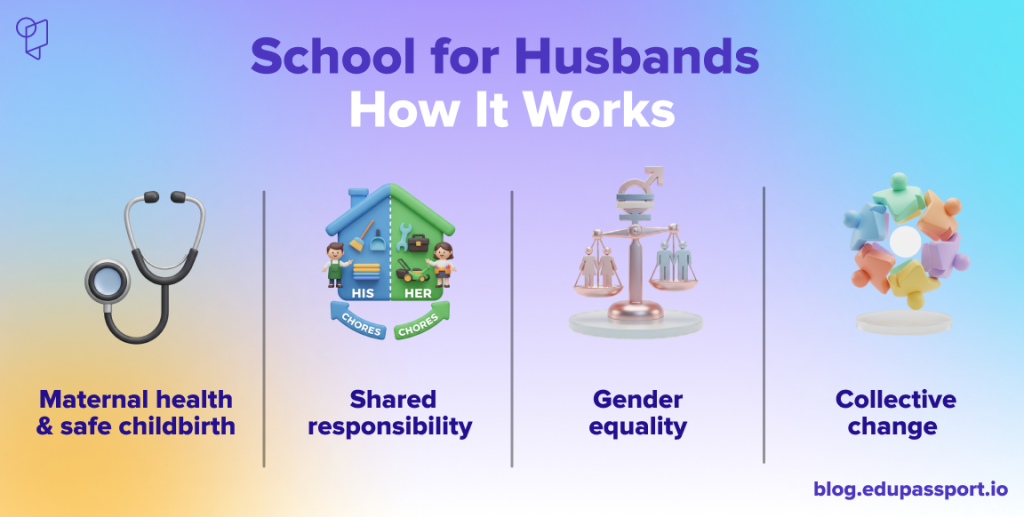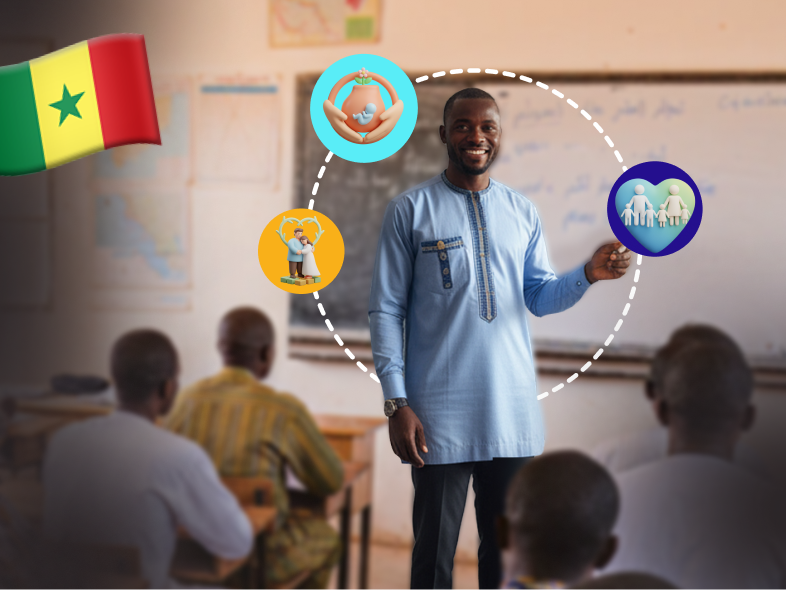In 2011, Senegal launched a bold initiative with support from the United Nations and the Ministry of Women, Family, Gender and Child Protection: the School for Husbands.
The concept is simple but powerful: teach men to be active partners at home — from supporting wives during pregnancy and childbirth to sharing responsibilities that promote healthier families.
Why a School for Husbands?
In many communities, men make key healthcare decisions for their families. When they’re uninformed or disengaged, it can mean:
- Delayed care during pregnancy.
- Higher health risks for mothers and children.
- Missed opportunities for healthier futures.
The School for Husbands tackles this head-on by:
- Educating men about maternal health and safe childbirth.
- Encouraging shared responsibility at home.
- Promoting gender equality and dismantling harmful norms.

Impact Beyond the Classroom
This initiative isn’t just about lessons — it’s about cultural transformation. Communities report:
- Reduced maternal deaths thanks to faster healthcare access.
- Improved child health outcomes through preventive care.
- Stronger family bonds as men take on caregiving roles.
- Shifts in norms with men stepping up as advocates for equality.
A Different Kind of Education
The School for Husbands is part of a global education shift: learning isn’t only about reading, writing, and math. It’s about reshaping values and responsibilities.
It sparks a question for educators worldwide:
👉 How can education address not just skills, but also values and shared responsibility in society?
EDU Passport’s Perspective
At EDU Passport, we see this as a powerful case study: education is a lever for cultural change.
When you educate one group, you transform entire communities.
Senegal’s Schools for Husbands prove that teaching men can:
- Reduce inequality.
- Save lives.
- Model inclusive learning in action.
👉 Explore EDU Passport’s global insights on how education drives social transformation and equality.






















